I won’t waste any breath on much of what’s happened in politics this week … that Hobby Lobby suit before the Supreme Court has got me hopping mad, but I’ll hold that for another week while I take the President to task for his speech to “European youth” about the Crimean crisis. One particular passage is very worthy of attention:
Russia has pointed to America’s decision to go into Iraq as an example of Western hypocrisy. Now, it is true that the Iraq War was a subject of vigorous debate not just around the world, but in the United States as well. I participated in that debate and I opposed our military intervention there. But even in Iraq, America sought to work within the international system. We did not claim or annex Iraq’s territory. We did not grab its resources for our own gain. Instead, we ended our war and left Iraq to its people and a fully sovereign Iraqi state that could make decisions about its own future.
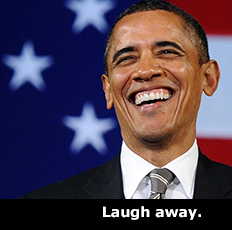
Here, Barry seems to be saying that it’s all right to ignore the clear will of the UN Security Council (and General Assembly) and invade another country, so long as eight years later you leave what’s left of them to sort out their political future ( this after their refusing to sign off on a status of forces agreement we were pushing for). It’s as if the dubious notion that we had a “vigorous debate” (perhaps in the street, but certainly not in the mass media) prior to starting the Iraq War somehow makes up for the fact that we went into that country on obviously false pretenses, over the objections of major allies and partners, including Russia.
That was bad enough. But just the fact that we are comparing Russia’s incursion into Crimea (death toll: less than ten, to greatly exaggerate the actual number) unfavorably with our attack on Iraq (death toll: hundreds of thousands, with fratricidal violence still killing thousands a year long after our exist) is craven beyond belief. He didn’t even mention the continuing conflict in Afghanistan. Small omission.
Finally, the resource point is a red herring. We didn’t go into Iraq to “grab its resources for our own gain”, though how that fact makes us virtuous is beyond me. Still, if Iraq’s main export was chicken wings, we would never have been there. It isn’t about stealing the oil; it’s about having a say in where it goes and where it doesn’t go. That’s as old as the American empire, and twice as thick.
Russia is a bad actor, no denying it, but we are far worse. Before we start condemning them for mustering their soldiers within their own borders, we might consider pulling ours out of the scores of countries where they are stationed, all around the world.
luv u,
jp

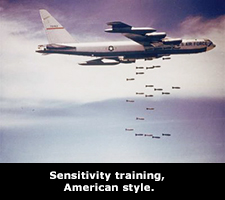 parties typically do an end-run around this by simply avoiding the word when it’s inconvenient. We’ve done this with Egypt and with Honduras. When it’s someone we don’t like, it’s a coup, plain and simple. In Kiev, the elected leader of the country was ousted without due process, in the midst of a negotiation over rebalancing of political authority and early elections. It’s not outlandish to call that a coup, regardless of how kleptocratic the old regime may have been.
parties typically do an end-run around this by simply avoiding the word when it’s inconvenient. We’ve done this with Egypt and with Honduras. When it’s someone we don’t like, it’s a coup, plain and simple. In Kiev, the elected leader of the country was ousted without due process, in the midst of a negotiation over rebalancing of political authority and early elections. It’s not outlandish to call that a coup, regardless of how kleptocratic the old regime may have been.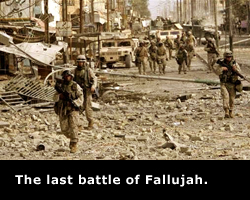
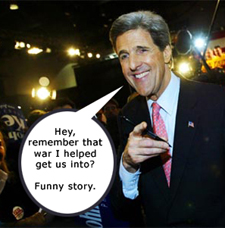 We have, under the banner of American Exceptionalism, invaded any number of third-world countries over the past century and a quarter. The results have not been positive. (Just ask them.) Putin and others are approaching us as if conducting an intervention; trying to keep us from repeating the same bad behavior, over and over again. You know you have a problem when it takes Russia and China to talk you down. One can only hope that they succeed. This Syria intervention is just a crazy, bad idea, and one that the president seems very attached to. It’s a kind of madness, executive power, and it’s long since taken hold of old Barry-O.
We have, under the banner of American Exceptionalism, invaded any number of third-world countries over the past century and a quarter. The results have not been positive. (Just ask them.) Putin and others are approaching us as if conducting an intervention; trying to keep us from repeating the same bad behavior, over and over again. You know you have a problem when it takes Russia and China to talk you down. One can only hope that they succeed. This Syria intervention is just a crazy, bad idea, and one that the president seems very attached to. It’s a kind of madness, executive power, and it’s long since taken hold of old Barry-O. What was the crime again? Oh, yes. Exposing the sprawling criminality of our foreign policy, namely the Iraq war and the Afghan war, plus releasing a raft of diplomatic cables relating to prosecution of the global war on tactics … I mean, terror. Heinous indeed. Perhaps someone needs to remind me again why the man who informed us of the war’s true impact is going to jail while the men who started the war are living a comfortable – and loudly opinionated – retirement. Rank has its privileges, to be sure.
What was the crime again? Oh, yes. Exposing the sprawling criminality of our foreign policy, namely the Iraq war and the Afghan war, plus releasing a raft of diplomatic cables relating to prosecution of the global war on tactics … I mean, terror. Heinous indeed. Perhaps someone needs to remind me again why the man who informed us of the war’s true impact is going to jail while the men who started the war are living a comfortable – and loudly opinionated – retirement. Rank has its privileges, to be sure.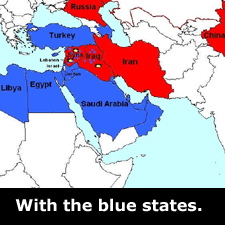 Already, I have heard more about the numbers of killed in Syrian than I ever heard about the Iraq catastrophe. Again, no surprise. The government and the press meticulously count the victims of official enemies, but when it comes to the corpses generated by our misguided policies, we don’t do body counts. They still won’t put a realistic number on the lives lost in Iraq, hovering around the casual 30K guess Bush made in 2007 or so. I suppose once we have both legs in the mire of this conflict they will stop counting again. But for now, the statistics are useful – they are trying to push the American people closer to intervention, and it’s evident that the effort isn’t working very well. Less than one in four is in favor of intervention.
Already, I have heard more about the numbers of killed in Syrian than I ever heard about the Iraq catastrophe. Again, no surprise. The government and the press meticulously count the victims of official enemies, but when it comes to the corpses generated by our misguided policies, we don’t do body counts. They still won’t put a realistic number on the lives lost in Iraq, hovering around the casual 30K guess Bush made in 2007 or so. I suppose once we have both legs in the mire of this conflict they will stop counting again. But for now, the statistics are useful – they are trying to push the American people closer to intervention, and it’s evident that the effort isn’t working very well. Less than one in four is in favor of intervention.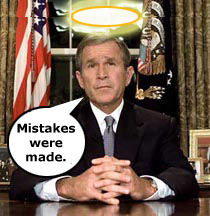
 Even by their reading of it as being an indisputable success (which killed about 1,200 Americans, b.t.w.), it could only possibly be seen as a minor corrective to one of the most heinous strategic blunders in the history of the American empire, as well as a major international crime of aggression that resulted in hundreds of thousands of deaths and massive displacement. If Hagel was against the “surge”, it’s only because their war had gone so badly and that they had proven themselves incapable of managing the conflict.
Even by their reading of it as being an indisputable success (which killed about 1,200 Americans, b.t.w.), it could only possibly be seen as a minor corrective to one of the most heinous strategic blunders in the history of the American empire, as well as a major international crime of aggression that resulted in hundreds of thousands of deaths and massive displacement. If Hagel was against the “surge”, it’s only because their war had gone so badly and that they had proven themselves incapable of managing the conflict. I think the reason it looked so empty was that there were no flags to represent the hundreds of thousands that have died since that day, and in large part because of that day. The cautionary “Never Forget” is more of a challenge to Americans than its author likely supposed. I can tell you, I will never forget September 11, 2001 – probably the most deeply horrifying day of my life. Remembering that has never been a challenge. What I think we as Americans need to work on remembering is the fact that our political leaders used that atrocity to commit other atrocities in our names. If there is any slippage of memory, it is on that particular slope.
I think the reason it looked so empty was that there were no flags to represent the hundreds of thousands that have died since that day, and in large part because of that day. The cautionary “Never Forget” is more of a challenge to Americans than its author likely supposed. I can tell you, I will never forget September 11, 2001 – probably the most deeply horrifying day of my life. Remembering that has never been a challenge. What I think we as Americans need to work on remembering is the fact that our political leaders used that atrocity to commit other atrocities in our names. If there is any slippage of memory, it is on that particular slope.